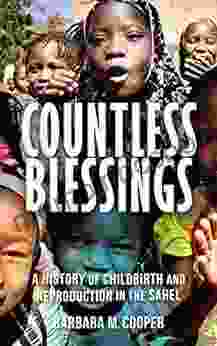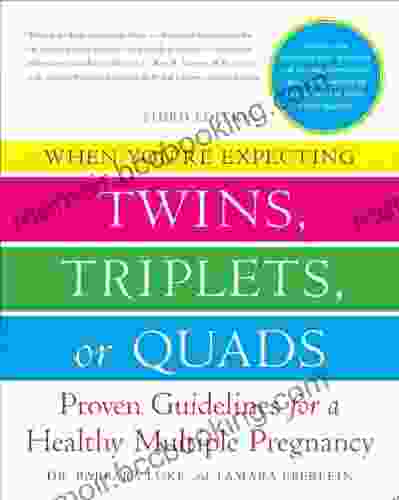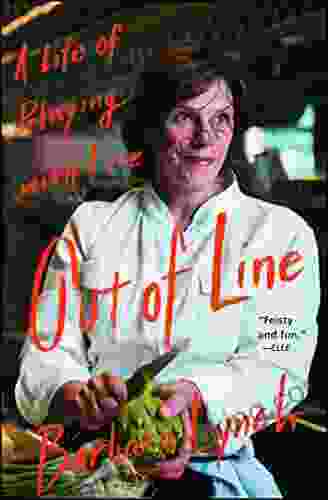The Ultimate Guide to Master's and PhD Degrees in Science Engineering Synthesis

4.8 out of 5
| Language | : | English |
| File size | : | 4674 KB |
| Text-to-Speech | : | Enabled |
| Screen Reader | : | Supported |
| Enhanced typesetting | : | Enabled |
| X-Ray for textbooks | : | Enabled |
| Word Wise | : | Enabled |
| Print length | : | 161 pages |
| Paperback | : | 120 pages |
| Item Weight | : | 6.3 ounces |
| Dimensions | : | 6.15 x 0.25 x 9.2 inches |
Are you interested in pursuing a graduate degree in Science Engineering Synthesis? If so, this guide is for you. We will cover everything you need to know about choosing a program, applying to school, funding your education, and writing your dissertation. We will also provide tips for success from current and former graduate students.
Choosing a Program
The first step in pursuing a Master's or PhD degree in Science Engineering Synthesis is to choose a program. There are many different programs to choose from, so it is important to do your research and find one that is a good fit for you. Here are some factors to consider when choosing a program:
- Research interests. What are your research interests? Do you want to work in a specific field of Science Engineering Synthesis, such as materials science, chemical engineering, or computer science? Choose a program that has a strong research program in your area of interest.
- Faculty. The faculty at a program are an important part of your graduate school experience. Look for a program with faculty members who are experts in your field of interest and who are willing to mentor you.
- Location. Where do you want to live while you are in graduate school? Consider the location of the program and make sure it is a place where you will be happy to live for several years.
- Cost. How much will it cost to attend the program? Consider the tuition, fees, and living expenses. Make sure you have a plan for funding your education before you apply to school.
Applying to School
Once you have chosen a program, you need to apply to school. The application process can be competitive, so it is important to put together a strong application. Here are some tips for applying to graduate school:
- Start early. The application process can take several months, so it is important to start early. Give yourself plenty of time to gather all of the required materials and write your personal statement.
- Get good grades. Your grades are one of the most important factors in the application process. Make sure you get good grades in your undergraduate coursework, especially in your science and engineering courses.
- Write a strong personal statement. Your personal statement is your chance to tell the admissions committee who you are and why you want to pursue a graduate degree. Take your time writing your personal statement and make sure it is well-written and error-free.
- Get good letters of recommendation. Letters of recommendation are another important part of the application process. Ask professors and other professionals who know you well to write letters of recommendation for you.
Funding Your Education
Graduate school can be expensive, but there are many ways to fund your education. Here are some options for funding your graduate studies:
- Teaching assistantships. Teaching assistantships are a common way for graduate students to fund their education. Teaching assistants help professors with teaching and grading, and in return they receive a stipend and tuition remission.
- Research assistantships. Research assistantships are another common way for graduate students to fund their education. Research assistants help professors with research projects, and in return they receive a stipend and tuition remission.
- Fellowships. Fellowships are competitive awards that are given to graduate students who have demonstrated academic excellence. Fellowships provide full tuition remission and a stipend.
- Scholarships. Scholarships are another type of financial aid that is available to graduate students. Scholarships are typically based on merit or financial need.
Writing Your Dissertation
The dissertation is the culmination of your graduate studies. It is a major research project that demonstrates your ability to conduct independent research and write a scholarly paper. Writing a dissertation can be a challenging process, but it is also a rewarding experience. Here are some tips for writing a successful dissertation:
- Choose a topic that you are passionate about. You will be spending a lot of time working on your dissertation, so it is important to choose a topic that you are interested in and that you are excited to write about.
- Do your research. Before you start writing your dissertation, you need to do your research. Read the literature on your topic and talk to experts in your field. Make sure you have a solid understanding of the topic before you start writing.
- Create an outline. An outline will help you organize your thoughts and ideas. It will also help you stay on track as you write your dissertation.
- Write a first draft. Once you have an outline, you can start writing your first draft. Don't worry about making it perfect at this point. Just get your ideas down on paper.
- Revise and edit. Once you have a first draft, you need to revise and edit it. Check for errors in grammar, spelling, and punctuation. Make sure your writing is clear and concise. Get feedback from your advisor and other trusted sources.
Tips for Success
Here are some tips for success in your Master's or PhD program:
- Be organized. Graduate school is a busy time, so it is important to be organized. Keep track of your deadlines, appointments, and assignments. Use a planner or calendar to help you stay on track.
- Set realistic goals. Don't try to do too much at once. Set realistic goals for yourself and break down large tasks into smaller, more manageable ones.
- Take care of yourself. Graduate school can be stressful, so it is important to take care of yourself. Eat healthy, get enough sleep, and exercise regularly. Make time for activities that you enjoy, such as spending time with friends and family, reading, or listening to music.
- Ask for help when you need it. Don't be afraid to ask for help from your advisor, other professors, or classmates. There are many people who are willing to help you succeed.
- Don't give up. Graduate school can be challenging, but it is also a rewarding experience. Don't give up if you encounter setbacks. Learn from your mistakes and keep moving forward.
4.8 out of 5
| Language | : | English |
| File size | : | 4674 KB |
| Text-to-Speech | : | Enabled |
| Screen Reader | : | Supported |
| Enhanced typesetting | : | Enabled |
| X-Ray for textbooks | : | Enabled |
| Word Wise | : | Enabled |
| Print length | : | 161 pages |
| Paperback | : | 120 pages |
| Item Weight | : | 6.3 ounces |
| Dimensions | : | 6.15 x 0.25 x 9.2 inches |
Do you want to contribute by writing guest posts on this blog?
Please contact us and send us a resume of previous articles that you have written.
 Book
Book Novel
Novel Page
Page Chapter
Chapter Text
Text Story
Story Genre
Genre Reader
Reader Library
Library Paperback
Paperback E-book
E-book Magazine
Magazine Newspaper
Newspaper Paragraph
Paragraph Sentence
Sentence Bookmark
Bookmark Shelf
Shelf Glossary
Glossary Bibliography
Bibliography Foreword
Foreword Preface
Preface Synopsis
Synopsis Annotation
Annotation Footnote
Footnote Manuscript
Manuscript Scroll
Scroll Codex
Codex Tome
Tome Bestseller
Bestseller Classics
Classics Library card
Library card Narrative
Narrative Biography
Biography Autobiography
Autobiography Memoir
Memoir Reference
Reference Encyclopedia
Encyclopedia Barbara Lynch
Barbara Lynch Annette Whipple
Annette Whipple Alisha J Brown
Alisha J Brown Barb Musick
Barb Musick Barbara A Somervill
Barbara A Somervill Ann Zwinger
Ann Zwinger Andrew Shaffer
Andrew Shaffer Anita Ganeri
Anita Ganeri Archie Superstars
Archie Superstars Anne Winkler Morey
Anne Winkler Morey Amber Ruffin
Amber Ruffin Alek Malkovich
Alek Malkovich Abbi Glines
Abbi Glines April M Cox
April M Cox Antoine Savine
Antoine Savine Anthony R Palumbi
Anthony R Palumbi Anne Sophie Jouhanneau
Anne Sophie Jouhanneau Anthony Timiraos
Anthony Timiraos Approach Guides
Approach Guides Adam Serwer
Adam Serwer
Light bulbAdvertise smarter! Our strategic ad space ensures maximum exposure. Reserve your spot today!

 Shane BlairThings I've Been Silent About: An Unforgettable Journey of Self-Discovery and...
Shane BlairThings I've Been Silent About: An Unforgettable Journey of Self-Discovery and...
 Federico García LorcaMemoir of Life After Stroke: A Journey of Hope, Resilience, and Triumph
Federico García LorcaMemoir of Life After Stroke: A Journey of Hope, Resilience, and Triumph Marvin HayesFollow ·18k
Marvin HayesFollow ·18k Kazuo IshiguroFollow ·18.7k
Kazuo IshiguroFollow ·18.7k Cameron ReedFollow ·7.4k
Cameron ReedFollow ·7.4k José MartíFollow ·16.3k
José MartíFollow ·16.3k Hugh ReedFollow ·17.7k
Hugh ReedFollow ·17.7k Holden BellFollow ·13.6k
Holden BellFollow ·13.6k Felipe BlairFollow ·6.8k
Felipe BlairFollow ·6.8k Ethan GrayFollow ·11.4k
Ethan GrayFollow ·11.4k

 Brayden Reed
Brayden ReedTeach Your Child They Have No Self Worth And They Will...
By Dr. Jane Doe ...

 Shawn Reed
Shawn ReedUnveiling Centuries of Tradition: History of Childbirth...
Journey into the heart of the...

 Brady Mitchell
Brady MitchellProven Guidelines For Healthy Multiple Pregnancy
Congratulations on your...

 Dylan Mitchell
Dylan MitchellHarness the Power of Sleep for Optimal Health and...
In the fast-paced,...

 Herman Melville
Herman MelvilleAlexander Hamilton: The Revolutionary Who Shaped...
Alexander Hamilton was a...
4.8 out of 5
| Language | : | English |
| File size | : | 4674 KB |
| Text-to-Speech | : | Enabled |
| Screen Reader | : | Supported |
| Enhanced typesetting | : | Enabled |
| X-Ray for textbooks | : | Enabled |
| Word Wise | : | Enabled |
| Print length | : | 161 pages |
| Paperback | : | 120 pages |
| Item Weight | : | 6.3 ounces |
| Dimensions | : | 6.15 x 0.25 x 9.2 inches |










